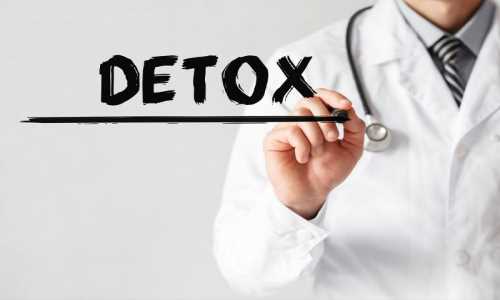How Long Does the Detox Programme Last?
 By
By
Cleansing the body of abusive, toxic substances
like drugs or alcohol while also managing the co-occurring withdrawal symptoms
is called detoxification or addiction detox. The most crucial step towards recovery, detox,
can overwhelm you and can be dangerous, depending on the substance used, the
severity of addiction and the way of consuming the substance. However, proper
treatment at a detox clinic can
help. Though detox typically takes a week or so, if you have a severe
addiction, it can extend by several weeks or even months. Hence, it is crucial
for you to know what the detox process offers. We will explore everything one
must know about detox in this article, including its length, withdrawal
symptoms, and what to expect from rehab
for addiction withdrawal. The Importance of Detox Drugs and alcohol are undoubtedly addictive, and
it becomes difficult to stop when you become dependent on a substance. Drugs
and alcohol disrupt normal brain function, and you keep consuming them to
experience the pleasurable effects. For example, when you participate in
activities that positively inspire you, the brain's reward pathways get flooded
by feel-good hormones, such as dopamine, encouraging you to indulge in the same
activities repeatedly. Similarly, pain medications or alcohol can make you feel
good, and you receive the same jolt of dopamine. As a result, you become
addicted to them, inducing the need for addiction
detox. Addiction Withdrawal Much like a medication prescribed by your
physician, prolonged exposure can suppress the effects, and you eventually need
higher doses to feel the effects. Similarly, when your body gets addicted to
the substances, you feel driven to consume them in higher doses to achieve the
same high. Finally, when you decide to detox and stop using the substance, your
body starts adjusting to the change, and the withdrawal process begins. Though
everyone responds differently to detox, most people get highly affected, with
symptoms ranging from mild to severe, for example, seizures and severe
dehydration. Therefore, it is vital to have round-the-clock access to
treatment, particularly for more serious addictions. Some of the most common symptoms include: l Paranoia l Mood swings l Depression l Nightmares l Insomnia l Flu-like symptoms, including fever and sore
throat l Nausea and vomiting l Anxiety or nervousness l Hallucinations l Sweating l Panic l Short-term memory loss l Psychotic episodes l Thoughts of self-harm l Muscle cramps l Lethargy The Length of Detox by Substances Different substances have different timelines for
detox. While you can detox from a few substances within a week, others cause
severe withdrawal symptoms. Accordingly, the rehab for addiction withdrawal
includes and strongly encourages medically-supervised detox. The table below is an illustration of the detox
timeline of different substances and the withdrawal symptoms associated with
them. Substance 24 Hours – 2 Days 3 – 5 Days First Week After First Week Alcohol Withdrawal
symptoms occur, including anxiety, insomnia, and shaking Symptoms
peak within 72 hours, and seizures, hallucinations, and fever may occur. Physical
symptoms taper off May
experience alcohol cravings until the treatment is received Sleeping Pills Within
hours of detox, patients may experience anxiety, shaking, insomnia, and
circulation problems Symptoms
may peak after the first few days, depending on the strength, dose, and
severity of substance abuse For
some, withdrawal symptoms may be delayed, beginning after a week after the
last use May
experience rebound insomnia, but gets worse until treated Marijuana Staying
hydrated and having a balanced diet can help ease the withdrawal symptoms Withdrawal
symptoms include headaches, insomnia, mood changes, reduced appetite, and
stomach problems Mental
symptoms increases, including drug cravings, loss of focus, irritability,
and depression Most
symptoms abate as the body resumes normal production of its own THC Hallucinogens Depending
on the type of hallucinogen, symptoms may vary from headaches, and sweating to drug cravings Withdrawal
symptoms peak and taper off in the first week of detox Changes
in the brain's reward system may cause mood changes until natural levels
return to normal PCP
is known to produce drug cravings in individuals following use Why do People go to Detox Facilities? More engagement with addictive behaviours makes
it more difficult for you to stop. Hence, addiction
detox can be hazardous without any medical supervision. And depending on
the condition, the rehab centres prepare treatment plans or suggest detox
medication to help ease the symptoms. For example, inpatient detox is the
safest way for those affected severely by the substances and need complete
abstinence to recover successfully. How Long Does the Withdrawal Process
Last? Detox length varies from person to person,
depending on several factors, such as your health, the dosage of the substance,
and any underlying mental health issues. Typically, withdrawal symptoms peak
after two days of your last substance abuse; they start to subside after a week
if you do not develop any severe health complications. Find a Suitable Detox Programme Anyone with an alcohol or drug addiction can
benefit from an addiction detox programme.
However, it is only the beginning of the road to recovery. Patients often
require appropriate treatment programs and participation in support groups to
achieve long-lasting sobriety. That's why seeking addiction help from rehab for addiction withdrawal is
crucial. Also, believing that spiritual development and healthy recovery can
recover a person in and out, multiple rehab centres and detox
clinics in the UK take a
people-centred approach to treating addiction. You just need to find the right
one! Because alcoholism is a social problem that impacts everyone in the
family, it's time to fight against addiction to facilitate the development of a
better society.






